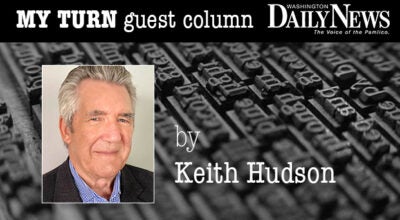Survey: Women want flexible employers
Published 11:36 pm Wednesday, July 24, 2013
Attracting the right candidate for employment may be as simple as having the right ZIP code.
A recent study by Randstad found that the attributes women look for in a potential employer included its location. About 40 percent of the women surveyed named the attribute as an important one compared to 35 percent of the men who responded.
Julian Goff, a member of the Belhaven Chamber of Commerce, said the survey results hold true for this area. Whether they work in or outside the home, women still bear the responsibility of tending to the needs of their children, he said.
“Right now, jobs are kind of hard to find and it’s hard for the employee to be too choosy, but its something that should be mentioned,” Goff added.
Randstad U.S. is one of the largest staffing agencies in the country. It surveyed 7,000 people with a variety of backgrounds and occupations to determine what made an employer attractive.
“How a company is perceived as an employer impacts what types of candidates it will attract,” said Lisa Crawford, senior vice president, Randstad U.S. “As our research reveals, companies may need to focus on key elements, such as building culture and adopting more flexible work policies, to appeal to different demographics. Attracting and retaining talent is not a one stop shop — particularly with a diverse work force and multiple generations sitting side-by-side to one another.”
Jamie Tice, Vidant Beaufort Hospital’s benefits coordinator in the human-resources department, said she has not found gender differences in prospective employees. Regardless of gender, the top three questions asked are the pay range, the benefits package and the sick/vacation time offered.
The survey discovered several differences along the gender lines.
Women are looking for a balance in their work and home life. Of those surveyed, 37 percent said workplace flexibility is a top priority, compared to 26 percent of men.
“I would agree with that statement,” said Christie Silken, account manager at Washington’s Executive Personnel Group. “We sometimes have women who are looking for flexible hours. These days, we get a lot more part-time employees.”
Goff said the flux of part-time employees is the result of the country’s new health care program.
“The government health care program has pushed employers into part time because if they (employees) have to work long hours, employers have to cover them,” Goff said. “The rules are such that it has caused employers to do what’s more economical. And the state and county government are following suit.”
And what do men want? About 42 percent of men look for opportunities for advancement, compared to 36 percent of women.
Men also want stability. Thirty-six percent of those surveyed said the financial health of a company is important to men, compared to 28 percent of the women.
With women making up half of the work force, Crawford recommended employees consider the benefits and values that will appeal to a diverse group.
“If companies are to retain and attract the best talent, they first need to assess what their brand really means, determine what keeps their talent coming through their doors and how to attract the next wave of workers who may have different expectations than what their company currently offers,” she said.





